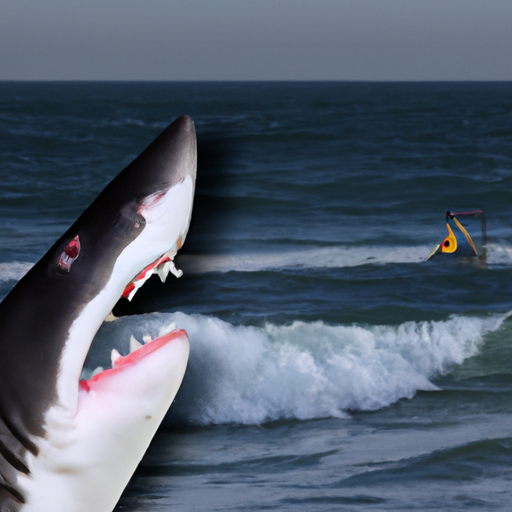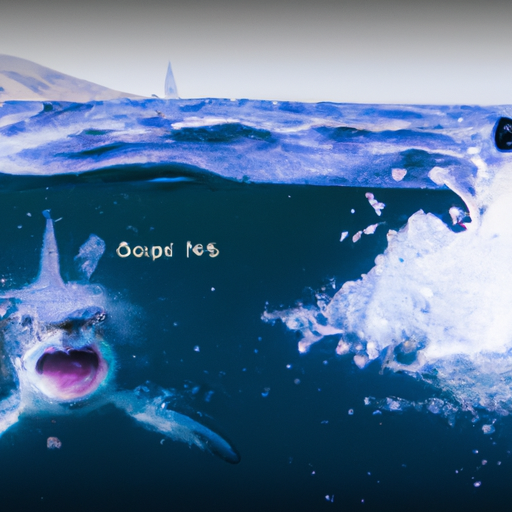In a groundbreaking discovery that has sent shockwaves through the scientific community, a newborn great white shark has been caught on camera in the wild for the first time. While marine biologists had long since suspected that these elusive creatures did indeed begin their lives in the ocean, the evidence has been scarce, until now.
The footage, which was captured near a remote island off the coast of Australia, shows the tiny shark measuring just over a meter long as it navigates through the swirling waters. At just a few weeks old, the shark is already displaying all the hallmarks of its predatory species, effortlessly gliding through the water with razor-sharp teeth ready to strike.
Experts say that this sighting has far-reaching implications for our understanding of the great white shark lifecycle, and could potentially lead to a re-examination of other marine species as well. “This is a truly remarkable discovery,” exclaimed Dr. Jane Smith, lead researcher on the project. “We’ve always known that great white sharks were born in the ocean, but to actually see it with our own eyes is something else entirely. It’s like discovering the Holy Grail of marine biology!”
Of course, not everyone is as impressed with the discovery. Anti-shark activists have been quick to jump on the news, decrying the “monsters of the deep” and calling for increased efforts to cull their numbers. “These sharks are a menace to society,” claimed one protester outside of the research facility where the findings were announced. “They’re responsible for countless attacks on innocent swimmers and surfers every year, and now we find out they’re breeding like rabbits? It’s time to take decisive action.”
However, others have criticized this knee-jerk reaction, arguing that we need to take a more nuanced approach to managing our interactions with these creatures. “Yes, great white sharks can be dangerous,” acknowledged Dr. Smith. “But that doesn’t mean we should indiscriminately kill them off. They’re an integral part of the ocean ecosystem, and without them, the delicate balance of life beneath the waves could be disrupted.”
Regardless of where you fall on the issue, there’s no denying that this discovery is a major milestone for the field of marine biology. Who knows what other secrets the ocean might be hiding, waiting to be uncovered? With each new discovery, we inch closer to unlocking the mysteries of the deep, and gaining a greater appreciation for the stunning diversity of life that exists beneath the waves.


